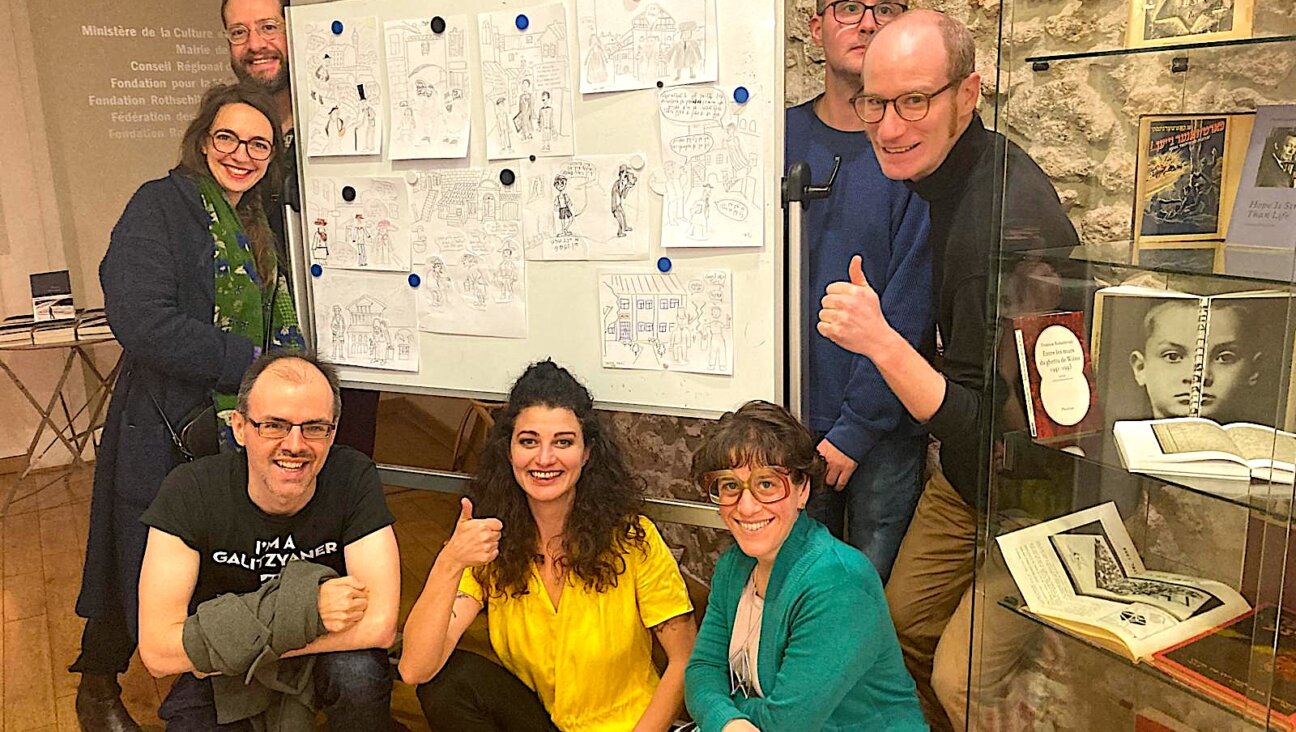Beyond ‘Fear’: Tips on Chutzpah
Seducing the Demon: Writing for My Life
By Erica Jong
Tarcher, 304 pages, $22.95.
* * *|
At the end of “Fear of Flying,” Erica Jong’s 1973 best-selling novel, the lead character lists potential female heroes. Simone de Beauvior? Too obsessed with Sartre. Sylvia Plath? Stuck her head in an oven. Doris Lessing? Her female characters only reach orgasm when they are with someone they love. She settles for French novelist Colette, but is not entirely satisfied. In reality, Jong herself had no true ideal of a female writer, so she decided to invent her own: Isabella Wong, the book’s largely autobiographical heroine, who discovers independence and self-esteem from within. With 20 million books sold worldwide, and reincarnations of Isabella appearing all over television, Jong’s character — which is to say, Jong herself — quickly became an idol to hordes of women.
In her introduction to her latest memoir, “Seducing the Demon: Writing for My Life,” Jong admits that she set out to write an advice book for writers, but the cheerleading involved in writing a book of that nature felt disingenuous. Her job was “to tell to the truth as she saw it.” Instead of giving her readers how-tos on writing, she decided to offer them a few how-tos on chutzpah — an endeavor that itself takes a little chutzpah.
Indeed, the title of the book offers a frisson. In “Taibele and Her Demon,” Isaac Bashevis Singer told a tale of a mortal man who disguises himself as a demon and makes nightly visits to an attractive young lady whose children have died and whose husband has abandoned her. Although at first repulsed by his appearance, the lady ends up falling for him and continues to pretend he’s a demon even after she realizes he is not.For Jong, her job as a writer is “to seduce the demons of creativity and make up stories.” “Often you go to bed with a man who claims to be a demon and later you find out he’s just an everyday slob,” she writes. “By then he may have inspired a novel. The novel remains though the demon has departed.”
The book is filled with all of Jong’s demons — her notorious lineup of men, her battles with addiction, her challenges as a mother and, perhaps the biggest chimera of all, fame. Although many of the anecdotes can be read in her previous books, including “Fear of Flying” and her 1994 memoir, “Fear of Fifty,” Jong repackages them to show how she used them as a writer. Through essays and an introduction, Jong reveals how she learned not only to stop fearing her demons but also to actually use them to her advantage. For example, in the essay “Does Writing Trump Family?” she explains how she wrote the first version of “Fear of Flying” in the voice of her ex-husband because she was scared that a book with a female narrator had little chance of success. But then a publisher told her to rewrite it in the “same irreverant female voice” of the poetry she had submitted to him. This was one of the first moments when Jong, the writer, stopped the fearing and began to seduce. She removed his voice from the story and replaced it with her own, allowing the demon to inspire her story instead of telling his own.
At times the essays meander, are often injected with quotes by other famous writers, and at moments have the cadence of an overzealous blogger rather than that of a woman who is writing her 20th book. There is also a list of famous names scattered conspicuously throughout. Still, despite a somewhat sloppy feel, Jong’s memoir ends up fulfilling her original mission. It does not offer the kind of straightforward advice found in writers’ workshops and in more traditional books on writing. Instead, by showing us how one writer, desperate for a hero, fashioned her own hero out of herself, we are given a lesson for the ages.
Like Taibele, Jong reveals how she learned to stop fearing her demon, regardless of how ugly or inexplicable it may be. Like Taibele, she learned to welcome the elusive figure in her bed, even if by morning the mystery would fade. And like Taibele, she eventually found herself seducing the demon, understanding that inspiration came with it.
Elissa Strauss is a writer and film producer living in New York City.
A message from our CEO & publisher Rachel Fishman Feddersen

I hope you appreciated this article. Before you go, I’d like to ask you to please support the Forward’s award-winning, nonprofit journalism during this critical time.
We’ve set a goal to raise $260,000 by December 31. That’s an ambitious goal, but one that will give us the resources we need to invest in the high quality news, opinion, analysis and cultural coverage that isn’t available anywhere else.
If you feel inspired to make an impact, now is the time to give something back. Join us as a member at your most generous level.
— Rachel Fishman Feddersen, Publisher and CEO























